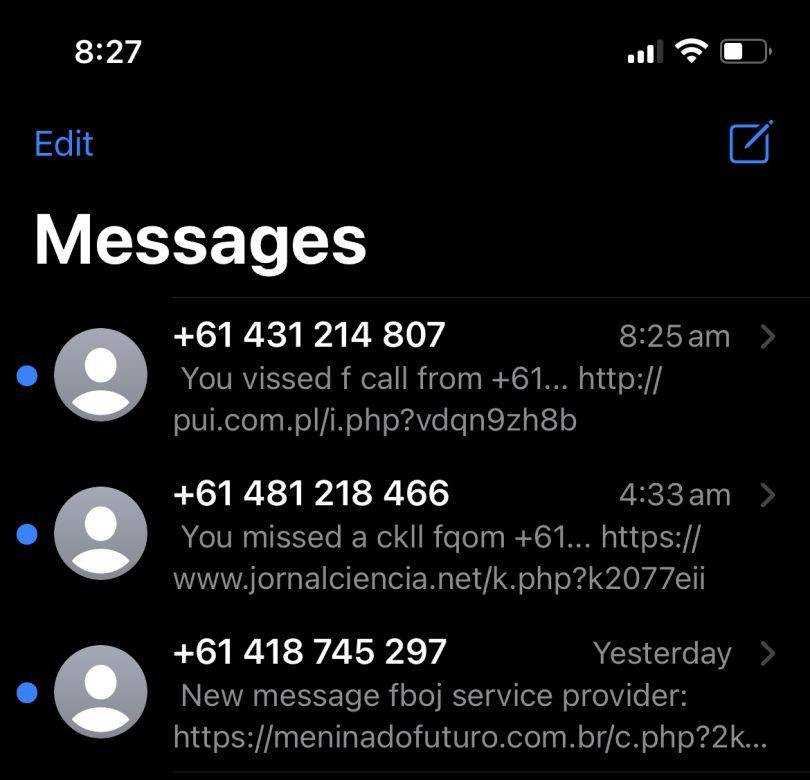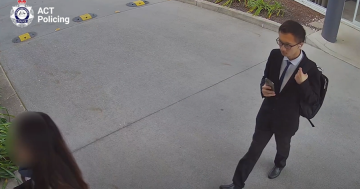
Fake voicemail messages are scamming Australians. Photo: Region Media.
Canberrans are being targeted by a number of scams, including reports of dozens of text messages with fake voicemail links being sent to the same device each week.
Scamwatch has received more than 5500 of these ‘flubot’ scams since early August. The text messages with the fake link are often characterised by five to six random lowercase letters or numbers and spelling errors throughout the message.
The phishing links, designed to steal a person’s passwords and data, will prompt the user to install an application or software on their phone to access the voicemail.
The messages should be deleted immediately. If you have clicked the link, do not enter any passwords or log into any accounts until taking the following steps outlined by Scamwatch here.
Scammers pretending to be from the Australian Tax Office have also been targeting Australians.
The calls sometimes threaten criminal prosecution or fines for not having filled out a tax return, which is due 15 May 2022 for individuals without a concession or outstanding tax returns.
ACT Policing said it was aware of several scams currently circulating and has received 44 reports of phone scams this year, nine of which claimed to be from the ATO or other government departments.
“Each time, the scammers have used a similar approach – impersonating an ATO employee and asking the victim to repay a tax debt. They may also threaten arrest or legal action if the victims don’t pay up,” an ACT Policing spokesperson said.
“In some cases, the scammers have taken large sums of money and it’s incredibly difficult to get your money back once you’ve been scammed.
“Members of the public should be aware of this and tell their friends and families, particularly if they know someone who would be vulnerable to this type of scam.”
The ATO says that while it sometimes uses phone, email, SMS or letters to get in contact, anyone who is unsure about the authenticity of the communique should call 1800 008 540.
The ATO will never threaten anyone with immediate arrest, tell them to stay on the line until payment is made or send an unsolicited prerecorded message.
Calls requesting payment in cryptocurrencies are also immediate red flags as the ATO does not accept that form of payment.
Canberrans have also been warned to watch out for computer take over scams, which have almost tripled compared to this time last year.
Scammers have stolen more than $7.2 million from Australians in the first half of this year by gaining access to home computers after pretending to be from well-known organisations such as Telstra, eBay, NBN, Amazon, banks, or the government.
They will pretend to help an individual after telling them they have been hacked or wrongly billed and ask them to download remote control software such as AnyDesk or TeamViewer.
Once remotely gaining access, scammers can access emails or internet banking to impersonate the victim or steal their money.
According to Scamwatch, scammers stole a record $851 million from Australians in 2020, taking advantage of the pandemic to con unsuspecting people by telling them government restrictions meant they could not see items like vehicles or puppies ahead of the sale.
Investment scams accounted for a third of all losses last year while health and medical scams increased more than 20 times the 2019 level, costing Australians nearly $4 million in losses.
More information about scams is available at scamwatch.gov.au.
Further information about common ATO scams and how to verify authentic tax calls can be found at ato.gov.au.





















